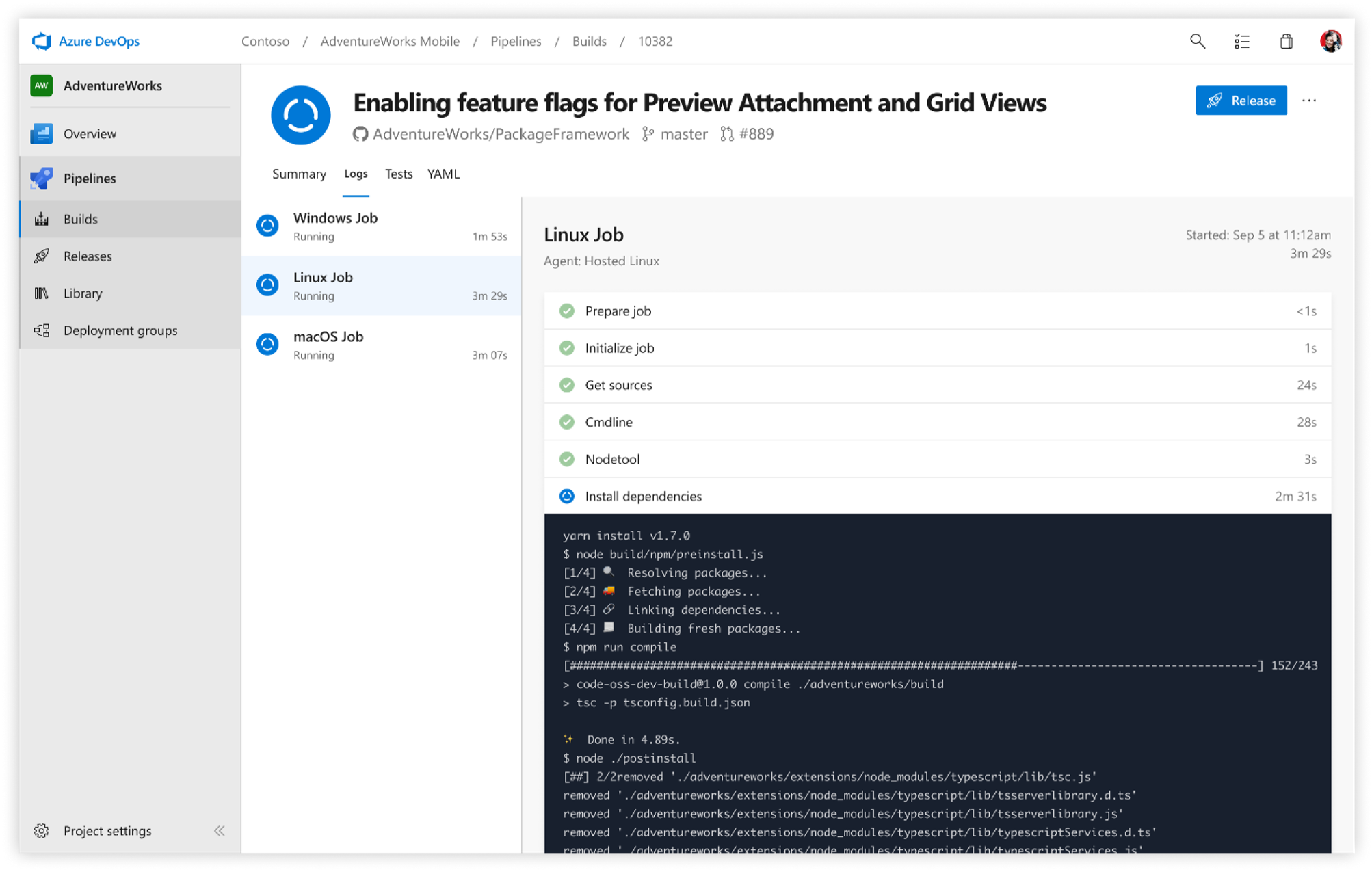Microsoft this week unfurled a broad range of DevOps services for the Azure cloud that are intended to make it easier for organizations to embrace modern application development and deployment processes.
Jaimie Cool, director of product management for Azure DevOps, said it’s fundamentally simpler for organizations to embrace DevOps processes using tooling hosted in the cloud because they don’t have to spend time setting up the underlying infrastructure themselves. Once they master those processes in the cloud, organizations can take the tooling provided by Microsoft and extend it out to either instances of Azure running in a local data center or Windows Server platforms.
The Azure DevOps portfolio spans Azure Pipelines, a continuous integration/continuous development (CI/CD) platform that supports any language; Azure Repos, a private repository based on Git; and Azure Test Plans, a wide range of testing tools. Azure DevOps also includes Azure Artifacts, which provides Maven, npm and NuGet package feeds from public and private sources, and Azure Boards, a suite of collaboration dashboards and reporting tools.

Microsoft is positioning Azure DevOps as an evolution of Visual Studio Team Services (VSTS). VSTS users will be upgraded into Azure DevOps projects automatically. Organizations that are using the on-premises Team Foundation Server (TFS) component of VSTS will continue to receive updates based on features made available in Azure DevOps. TFS will be rebranded Azure DevOps Server starting with next release.
As part of this launch Microsoft is also making Azure Pipelines available for free with unlimited minutes for 10 parallel jobs for every open source project. Major open source projects already using Azure Pipelines for CI/CD include Atom, CPython, Pipenv, Tox, Visual Studio Code and TypeScript.
Cool said that when it comes to application development, too many organizations overlook the critical role of DevOps processes in making a project a success. There’s a tendency to focus too much on features rather than the tools that enable an organization to deliver those features consistently. DevOps processes are crucial when it comes to improving the quality of software and the velocity at which upgrades are delivered, he said.
But the ultimate DevOps goal is to not to increase the number of releases put into production over a specific amount of time such as a week, month or quarter, he added. Rather, organizations should be able to updates to applications whenever they are ready or required.
Cool noted there’s a high correlation between adoption of Docker containers and an appreciation of the value of DevOps. As organizations embrace microservices-based architectures based on containers, the complexity of the IT environment overall increases. That issue soon may be coming to a head for more organizations, as Microsoft is now seeing containers all over the place, he said.
Longer term, Microsoft expects to see machine learning incorporated into DevOps processes as well, Coole said, noting that it’s still early days as far as machine learning and DevOps are concerned.
Clearly, Microsoft is trying to provide a more sophisticated DevOps experience as part of an ongoing battle with Amazon Web Services (AWS) and other cloud service providers to attract developers to its platform. As those efforts continue to expand, the number of organizations Microsoft schools on the DevOps processes should increase correspondingly.

